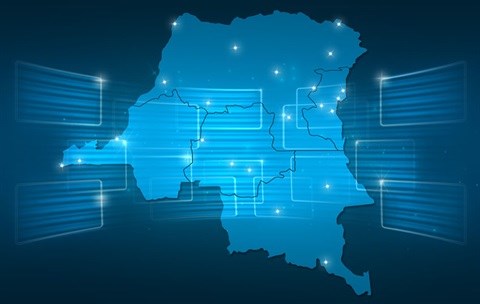Although the government of the DRC has included provisions for digital infrastructure development as part of their 2012-16 plans, the private sector is where the developmental race is really happening. This is the country's real digital battleground and the challenge remaining for companies is whether to participate or be a spectator?

©Michael Külbel via
123RFHere are four reasons why Vox Africa believes that investment into the DRC tech sector makes sense.
1. Clear advantage for early movers
There are a number of online businesses that have already started making headway in the DRC and their early-mover status has propelled them into leadership positions. These are as follows: lepotentielonline.com (first online daily); mediacongo.net (first site for online recruitment); congomikili.com (first web TV for the Congolese public); baziks.net (first online music retail site) zefoneworld.com (first online sales site specializing in mobile telephony) and lezando.com (first online general sales site). Each of these businesses have managed to secure at least 50% market share mostly due to being first to market.
Other businesses have also had success, by expanding their offering from traditional bricks and mortar to the on-line environment. Le Potential - already the dominant newspaper in the country, is now also delivering successful online content.
Basiks.net and lezando.com have simply created their own sector. The first by providing unprecedented music offers and news on Congolese artists; the second by offering a unique experience of buying online, through a catalogue of more than 20,000 products.
These companies are suppliers of goods, services or content. Newcomers in a fledgling digital economy in DRC, they represent exciting business opportunities for either investors or entrepreneurs with a vision to be part of DRC's growing technology sector.
2. Exciting new tech ventures
Also extremely exciting is the Imani Hub. Established in 2014, Imani Hub; "Is a collaborative space for the Information & Communications Technology (ICT) Sector. It is also a tech hub laboratory for innovation and a start-up incubator" says co-founder Luigi Risaci.
It is a 200sqm space filled with DRC techno-geeks, offering workshops, lectures and practical sessions. Their latest feat, in partnership with telecom operator Airtel, is a lab, housing over 17 local start-ups who commenced work on 2 April, this year.
Another success story is TIKDEM, a computer engineering service company. Their portfolio includes banks, schools and telecom operators, for whom they develop optimisation solutions. Founded by Kamahunda Mulamba, TIKDEM successes have been showcased on Canal Plus TV and with Orange DRC, they have developed several digital theatres in the capital.
Both TIKDEM and Imani Hub are examples of the private sector contributing to the development of the DRC tech sector - providing shovels to digital gold miners, so to speak. Their existence is testament to the vitality of the sector and the ability of these companies to capture offshore customers will be a key next step to their future growth.
. Encouraging policy changes to facilitate e-commerce
Also extremely encouraging are the considerations for modernisation of Congolese law in relation to e-commerce and digital information. This will facilitate even faster growth of the technology sector and provide greater security for the more than two million people who use mobile payments (via Airtel Money, M-Pesa and Tigo cash). With few banks offering e-commerce payment platforms (only UBA, ProCredit, TMB to date), mobile payment has become the main payment instrument for e-commerce in DRC.
In the words of William Ngandu, CEO of lezando.com (the first e-commerce site in the DRC), "The lack of classic resources in online payment such as Visa or MasterCard is no longer a barrier. Mobile payments are a credible replacement for these systems. I think 2015 is a pivotal year for e-commerce because all the ingredients are here: more and more players, technology that addresses local challenges and the emergence of a social class with varied tastes."
4. Increased internet penetration
Whilst the penetration of broadband internet remains minuscule (0.92%), growth in mobile phone penetration is rapid (37% in 2013). Coverage is almost national and comprehensive in large urban centres. Since the arrival of Orange DRC in 2012, the competition between Internet service providers (ISPs) has also made access more affordable and thus more universal.
The digital economy in DRC is on the rise and rapidly so. Lezando.com, Imani Hub or TIKDEM are a few examples that reflect the will of the players in this sector toward self-determination. Although the lack of financial market support may restrict the rate of development, the fact remains that organisations and initiatives such as these are multiplying. In a world of 2.0, 3.0 and beyond, these entrepreneurs will continue to seek out and identify DRC opportunity.
The game starts now: Are you a 2.0 investor or not?














